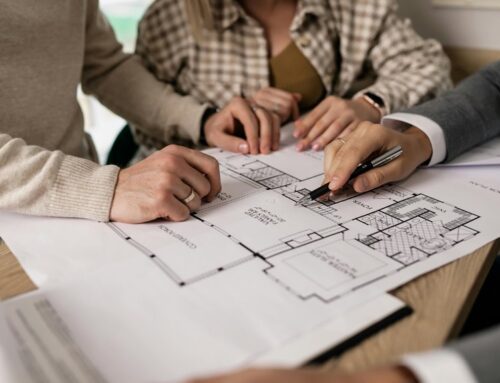Selling your Atlanta home during bankruptcy can feel intimidating, but it doesn’t have to be. Understanding how bankruptcy affects your homeownership is essential for making informed decisions. You’ll need to navigate various legal considerations and find the right realtor to guide you. With the right approach, you can turn this challenging situation into an opportunity. So, what steps should you take first to guarantee a smooth process?
Key Takeaways
- Consult a bankruptcy attorney to understand the implications of bankruptcy on your home sale and ensure compliance with legal requirements.
- Obtain an accurate home evaluation through a professional appraisal or comparative market analysis to set a competitive selling price.
- Choose a realtor with experience in bankruptcy situations and local market knowledge to effectively navigate the selling process.
- Declutter and make minor repairs to enhance your home’s appeal, creating a neutral environment for potential buyers.
- Communicate regularly with your bankruptcy attorney and realtor throughout the sale to address any legal considerations and buyer negotiations.
Understanding Bankruptcy and Its Impact on Homeownership
When you face bankruptcy, it’s essential to understand how it affects your homeownership status. Bankruptcy can lead to significant changes, including the potential loss of your home. If you’re behind on mortgage payments, your lender may initiate foreclosure. However, you might be able to keep your home depending on the type of bankruptcy you file. Chapter 7 may require you to sell your home to pay debts, while Chapter 13 could allow you to catch up on payments. It’s vital to consult a bankruptcy attorney to navigate these complexities and determine the best course of action for your situation.
Evaluating Your Home’s Value in a Bankruptcy Context
When you’re facing bankruptcy, accurately evaluating your home’s value is essential. You’ll want to use market analysis techniques to understand what similar homes in your area are selling for. Additionally, getting a professional appraisal can provide a clear, objective view of your property’s worth during this challenging time.
Market Analysis Techniques
Although managing the complexities of bankruptcy can be intimidating, understanding how to evaluate your home’s value is essential for making informed decisions. Start by researching recent sales of similar homes in your neighborhood. This comparative market analysis will give you a solid benchmark. Next, consider current market trends and the overall economic climate in Atlanta. Are home values rising or falling? Finally, take note of any unique features your home offers that may enhance its appeal. By combining these insights, you can set a realistic price that attracts buyers while meeting your financial needs during this challenging time.
Professional Appraisal Importance
After conducting a comparative market analysis, getting a professional appraisal can further clarify your home’s value, especially during bankruptcy. A certified appraiser provides an unbiased evaluation, ensuring you understand your home’s worth in the current market. This insight can be essential when negotiating with creditors or potential buyers. It also helps you avoid underpricing or overpricing your property, which can impact your financial recovery. Plus, having an official appraisal strengthens your position in legal proceedings. Ultimately, investing in a professional appraisal can lead to a more informed and strategic selling process during this challenging time.
Navigating Legal Considerations When Selling Your Home
When selling your home during bankruptcy, it’s essential to understand the different types of bankruptcy and how they affect your sale. You’ll also need to be aware of your legal obligations to creditors and the role of your bankruptcy trustee in the process. Keeping these factors in mind can help you navigate the complexities of selling your home smoothly.
Understanding Bankruptcy Types
Understanding the different types of bankruptcy can markedly impact your ability to sell your Atlanta home. There are primarily two types relevant for homeowners: Chapter 7 and Chapter 13. In Chapter 7, your non-exempt assets may be liquidated to pay debts, but you can sell your home if it’s exempt. Chapter 13, on the other hand, allows you to keep your home while repaying debts over time. Knowing which type you’re facing will help you navigate the selling process more effectively. Make sure to consult with a bankruptcy attorney to understand how it affects your specific situation before proceeding.
Legal Obligations to Creditors
Selling your home during bankruptcy involves maneuvering a complex web of legal obligations to creditors. You’ll need to keep several critical points in mind:
- Notify your creditors: It’s crucial to inform them about the sale of your property.
- Evaluate your exemptions: Understand what assets you can protect to maximize your financial recovery.
- Follow court requirements: Verify you comply with any court orders regarding the sale process.
Navigating these obligations can be tricky, but understanding them will help you avoid complications and protect your interests during this challenging time.
Role of Bankruptcy Trustee
In the midst of bankruptcy proceedings, the role of the bankruptcy trustee becomes essential when it comes to selling your home. The trustee acts as a neutral party, ensuring that the sale is fair and compliant with bankruptcy laws. They’ll assess your home’s value and may approve the sale to maximize returns for creditors. You’ll need to communicate openly with the trustee about your plans, as they may require specific documentation or consent. Remember, their primary goal is to protect the interests of your creditors while helping you navigate this challenging process. Working together can lead to a smoother sale.
Choosing the Right Realtor for Your Situation
How can you guarantee you find the right realtor during such a challenging time? Start by seeking someone experienced with bankruptcy situations. You need a realtor who understands your unique circumstances and can navigate the complexities involved. Consider these essential factors:
- Local Knowledge: Look for a realtor who knows the Atlanta market well.
- Strong Communication: Choose someone who keeps you informed and responds quickly to your questions.
- Reputation: Research reviews and ask for referrals to verify they have a solid track record.
Finding the right fit can make a significant difference in your home-selling experience.
Preparing Your Home for Sale: Tips and Strategies
While preparing your home for sale during bankruptcy can feel overwhelming, taking strategic steps can help you attract potential buyers and maximize your sale price. Start by decluttering and depersonalizing your space to create a neutral environment. Next, consider minor repairs and fresh paint to enhance appeal. Pricing your home competitively is essential; consult with your realtor for guidance.
| Task | Tips | Benefits |
|---|---|---|
| Declutter | Remove personal items | Increases buyer interest |
| Minor Repairs | Fix leaks, paint walls | Enhances perceived value |
| Curb Appeal | Trim landscaping | Creates a great first impression |
| Staging | Arrange furniture nicely | Helps buyers envision living |
| Competitive Pricing | Research local market | Attracts more potential buyers |
Managing the Sale Process and Post-Sale Considerations
Once you’ve prepared your home for sale, managing the sale process becomes essential, especially during bankruptcy. You’ll want to guarantee everything runs smoothly to maximize your profit and comply with legal requirements. Consider these key points:
- Communicate with your bankruptcy attorney: Keep them updated on the sale to avoid any complications.
- Set a competitive price: Work with your realtor to determine a price that attracts buyers while covering your debts.
- Be prepared for buyer negotiations: Flexibility can help you close the sale faster and meet your financial goals.
After the sale, stay informed about how the proceeds affect your bankruptcy case.
Frequently Asked Questions
Can I Sell My Home While in Chapter 7 Bankruptcy?
Yes, you can sell your home while in Chapter 7 bankruptcy. However, you’ll need to get court approval and guarantee any proceeds go to your bankruptcy estate. Consult your attorney for specific guidance tailored to your situation.
Will Selling My Home Affect My Bankruptcy Discharge?
Selling your home might complicate your bankruptcy discharge, yet it can also provide necessary funds. You’ll need to navigate the legalities carefully, ensuring you don’t jeopardize your chances of a successful discharge. Always consult an attorney.
How Long Does It Take to Sell a Home During Bankruptcy?
Selling a home during bankruptcy typically takes about 30 to 90 days, depending on market conditions and your home’s readiness. However, factors like pricing and buyer interest can impact the timeline considerably.
Can I Keep Any Profits From the Home Sale?
You might think you’ll be rolling in cash from the sale, but unfortunately, it’s not that simple. Depending on your bankruptcy type, you may have to hand over those profits to creditors.
What Happens if My Home Sells for Less Than My Mortgage?
If your home sells for less than your mortgage, you’ll still owe the remaining balance. This shortfall can complicate your financial situation, potentially leading to further legal implications or negotiations with your lender.
Conclusion
Selling your Atlanta home during bankruptcy might feel like steering through a stormy sea, but with the right tools and guidance, you can reach calmer waters. By understanding the intricacies of bankruptcy, working with a skilled realtor, and preparing your home for sale, you can guarantee a smoother journey. Remember, consulting with a bankruptcy attorney is key to protecting your interests. With a solid plan in place, you can turn this challenging situation into a fresh start.
Contact us now.











